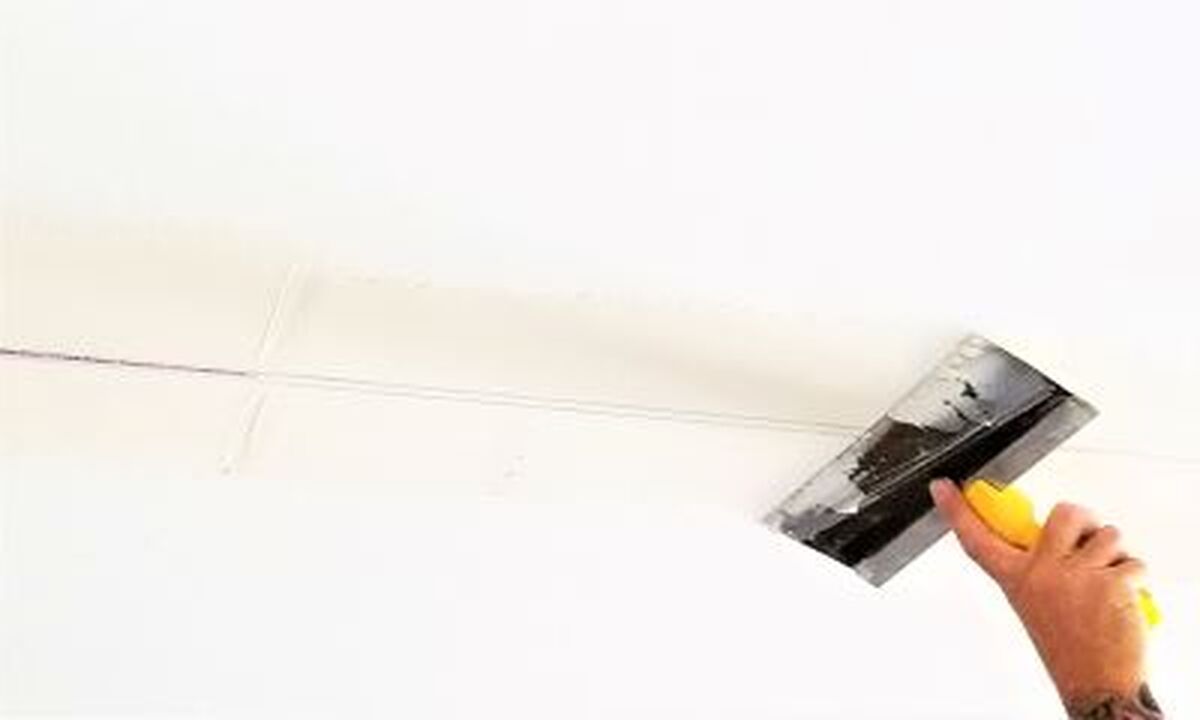Trouble Above? How to Take Care of Your Ceiling Cracks
Cracks in ceilings can be a sign of a larger problem, or they may be nothing but a cosmetic issue. But when selling a home, all flaws in the ceiling require attention.
Most ceilings will develop a few cracks over the years that are harmless and not indicative of some bigger issue. Repairing these is a fairly simple process.
Start by removing loose paint and drywall with a utility knife. Next, cover the crack with mesh tape, centering the crack within the tape. Spread drywall joint compound over the tape, using the putty knife to make the compound flat. Don’t be afraid to use too much compound, because the next step is to sand down any ridges after the compound has dried. Be sure not to sand the tape away.
The final steps are to prime and paint. Painting the entire ceiling is best so that it looks uniform.
Larger cracks are more serious and require professional attention. So-called spider web cracks can stretch from a ceiling to walls and floors. These large cracks can be a sign of structural damage and should be repaired quickly. When a crack runs across the ceiling and continues down a wall, it is commonly a sign of structural damage caused by a weak wall stud.
Cracks combined with a so-called “bow,” or dip in the ceiling can be a serious challenge. If the support provided by joists weakens, a ceiling will sag—a professional should be contacted right away if this is happening.
Another thing to look at is the coloring of a crack. If yellow or brown stains are around the crack, it’s a sign of a water leak. Be sure you find the cause of the leak and have it repaired before you fix the crack in the ceiling.
Even if your ceiling is free of cracks, it’s well worth your time to take a close look when selling the home. Simply dusting or vacuuming your ceiling, particularly in the corners, can make a difference to buyers. Also, be sure to clean away any scuffs. If your ceiling needs a new paint job, consider painting it white, which can make the ceiling appear higher. And while you’re up on that ladder, dust ceiling fans and vacuum vents that are high on walls.
Most ceilings will develop a few cracks over the years that are harmless and not indicative of some bigger issue. Repairing these is a fairly simple process.
Start by removing loose paint and drywall with a utility knife. Next, cover the crack with mesh tape, centering the crack within the tape. Spread drywall joint compound over the tape, using the putty knife to make the compound flat. Don’t be afraid to use too much compound, because the next step is to sand down any ridges after the compound has dried. Be sure not to sand the tape away.
The final steps are to prime and paint. Painting the entire ceiling is best so that it looks uniform.
Larger cracks are more serious and require professional attention. So-called spider web cracks can stretch from a ceiling to walls and floors. These large cracks can be a sign of structural damage and should be repaired quickly. When a crack runs across the ceiling and continues down a wall, it is commonly a sign of structural damage caused by a weak wall stud.
Cracks combined with a so-called “bow,” or dip in the ceiling can be a serious challenge. If the support provided by joists weakens, a ceiling will sag—a professional should be contacted right away if this is happening.
Another thing to look at is the coloring of a crack. If yellow or brown stains are around the crack, it’s a sign of a water leak. Be sure you find the cause of the leak and have it repaired before you fix the crack in the ceiling.
Even if your ceiling is free of cracks, it’s well worth your time to take a close look when selling the home. Simply dusting or vacuuming your ceiling, particularly in the corners, can make a difference to buyers. Also, be sure to clean away any scuffs. If your ceiling needs a new paint job, consider painting it white, which can make the ceiling appear higher. And while you’re up on that ladder, dust ceiling fans and vacuum vents that are high on walls.


 Menu
Menu




